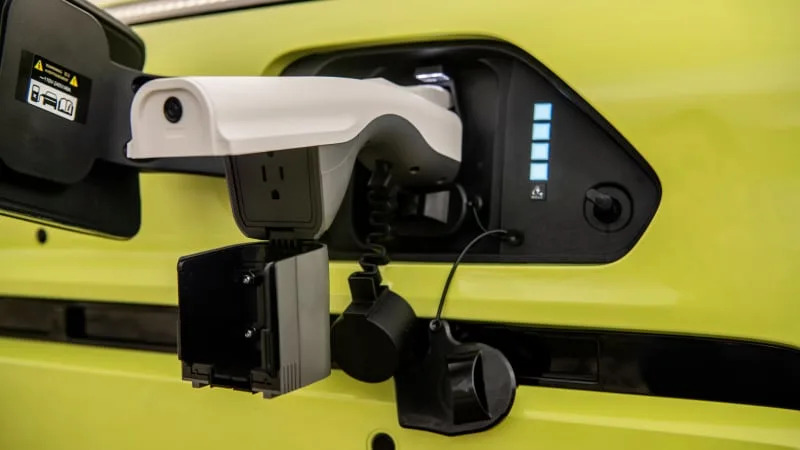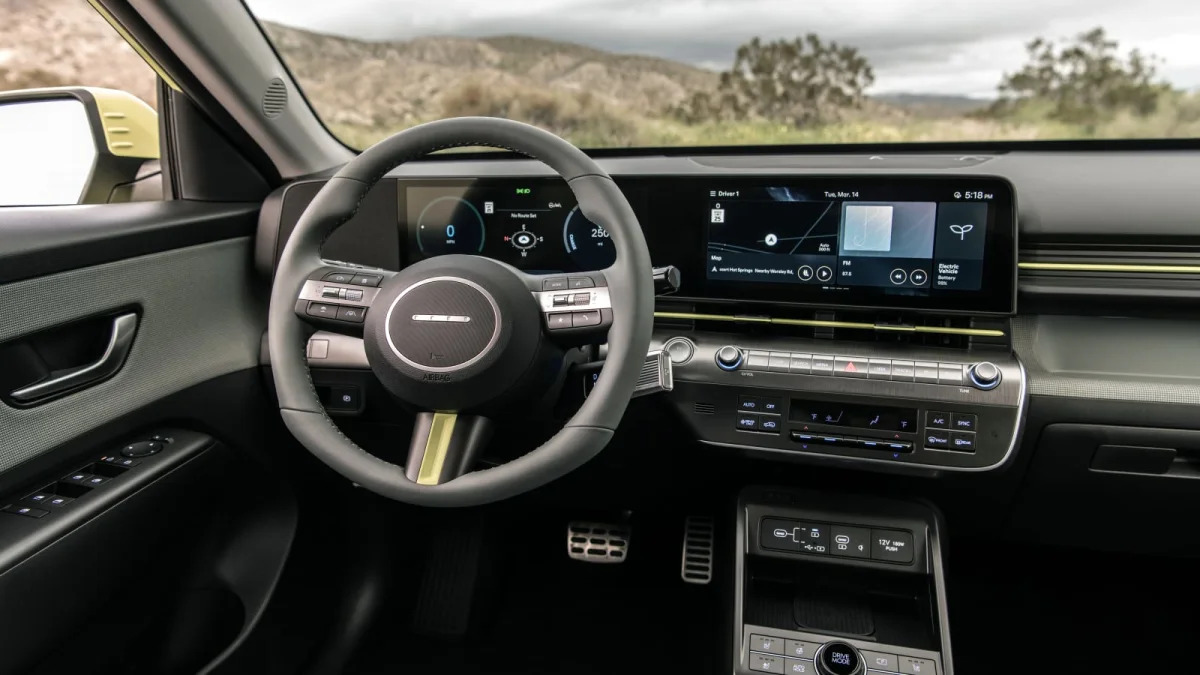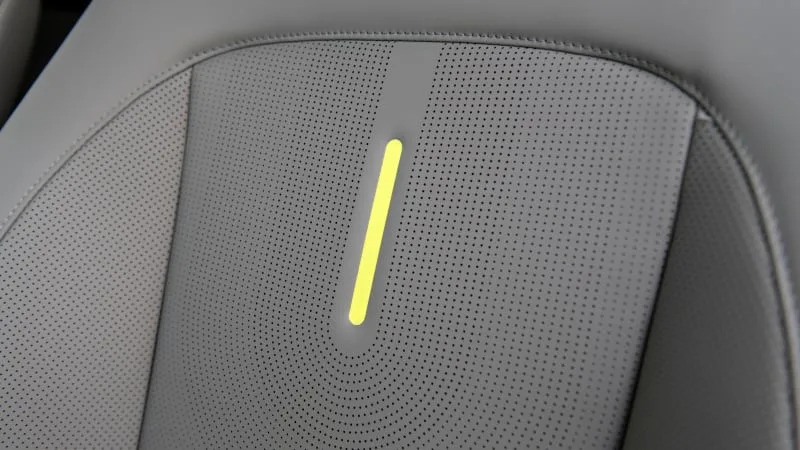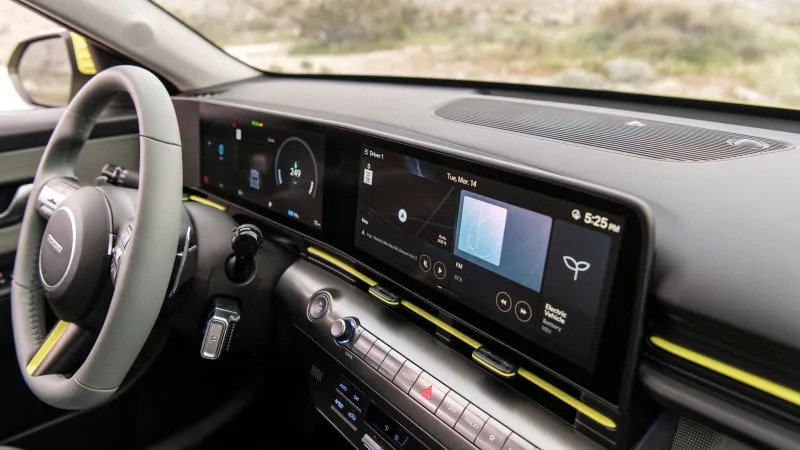2024 Hyundai Kona Electric Preview Drive: Still not a mini Ioniq 5, but promising

Earlier this month, we had our first opportunity to drive the 2024 Hyundai Kona. It’s bigger, roomier and better at hauling cargo than the outgoing model, but the powertrains pretty much carry over from the previous-generation car. That’s not the case with the 2024 Hyundai Kona Electric, which gets a more significant overhaul of its powertrain lineup.
There are now two motor and battery combinations available, roughly paralleling the gasoline options in the standard car. There’s a new entry-level, 133-horsepower motor mated to a 48.6 kWh battery with 197 miles of range and then a larger, 201-horsepower motor paired to a 64.8 kWh battery, which Hyundai says is good for 260 miles. Either way, it’s front-wheel-drive only.
If you’re familiar with the outgoing Kona Electric, that 201-horsepower figure should ring a bell, as it’s the same output as last year. However, the torque output decreased considerably, from 291 pound-feet to just 188. The base motor produces the same 188 pounds of twist twist, for whatever that’s worth. The Kona’s upgrade motor is also the same unit found in its platform mate, the Kia Niro EV, and like that car, the new Kona Electric still uses 400-volt architecture. The E-GMP platform utilized by the Ioniq 5 and Ioniq 6 packs an 800-volt setup.

While this makes no difference at all in the way the Kona drives, this is a charge speed bottleneck; don’t expect significant improvements over the outgoing car; charging from 10 to 80% on a level 2 home setup should take just over 5 hours for the smaller battery and 6:15 for the larger; both can top off on a level 3 fast-charger in approximately 43 minutes, Hyundai says. A max charge rate isn’t specified by Hyundai, but the charge time suggests it’s similar to the Kia Niro EV that tops out at 85 kW.
The new Kona Electric hasn’t launched just yet, but Hyundai shipped a pair of pre-production prototypes in from the mothership for us to sample during a break in our evaluation of the standard model. The loop set up for us was quite short, but its meandering route through Baltimore County horse country was nonetheless informative.
For starters, it’s quiet. Hyundai told us that reducing wind and road noise was fairly high on the company’s priority list for the redesigned Kona. It’s obvious that a great deal of that effort went into the EV model, which can’t rely on the thrum of a petroleum-burning engine to help drown out undesirable frequencies. It’s an eerie transition from the gas model to the Electric; the latter is far more serene.



But let’s get to the part you’re itching to hear about: the torque. I’m relieved to report that while it has lost its inclination toward one-tire fires, the Kona Electric still has more than enough oomph to do the job. Pulling away from a stop sign just 100 feet from a blind curve in this part of the country often results in a rearview mirror full of pickup truck; even without the extra grunt, the Kona can turn that rapid closing distance into a stalemate in the blink of an eye.
For better or worse, the Kona Electric was already heavy. One upside to an already-heavy car is that it tends to absorb weight gain a bit more gracefully. In other words, while the gasoline model feels obviously heavier than its predecessor, the Electric really doesn’t. And as with most EVs, you feel it most under braking. The ride is well-controlled and the handling surprisingly crisp; just don’t get too aggressive with your following distances as a stop sign at the bottom of a steep, winding hill can sneak up really fast.
With a few months left to bake, the Kona Electric looks promising. Hyundai hasn’t announced pricing or final specifications yet, but at most, we expect the base Electric to be only slightly more expensive than the gasoline-powered Limited. Expect the 133-horsepower model to list for under $35,000, with the 201-horsepower version pushing north toward $40,000.
Related Video:



